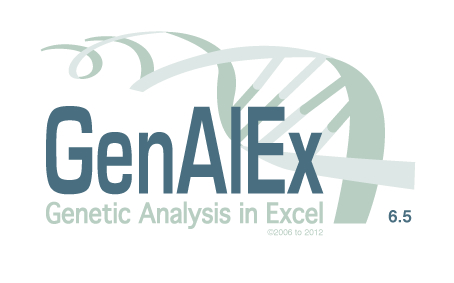Genetic analysis for population studies
A national workshop on the analysis of population genetic patterns for graduate students and other scientists.
Event series
Content navigation
Description

A national workshop for graduate students and other scientists offered by Professor Rod Peakall (ANU) and Professor Peter Smouse (Rutgers University, USA).
Jointly sponsored by CBA and ANU.
We are pleased to announce the 6th and final workshop in this popular series on analytical methods for the analysis of population genetic patterns. The course will cover a wide range of standard and new statistical procedures for the population analysis of single-locus codominant markers (e.g. microsatellites and SNPs), multiple-locus dominant markers (e.g. AFLPs), and haploid markers (e.g. mtDNA and cpDNA sequences). The course is designed to ensure that students fully understand the procedures involved. For many analyses, students will learn to calculate the various statistics by hand, before attempting the self-paced, computer-based tutorial examples, pursuing further understanding and interpretation of the results. Lectures, with examples drawn from a wide range of organisms, will illustrate both statistical analyses and biological interpretations of real data sets. In an update to the course, we will also briefly explore the issues and challenges in population genetic analysis that arise with next-generation-sequencing (NGS) based data sets.
The workshop will commence on Monday 1 July and will run through to Friday, 5 July. Similar courses were offered in 1996, 1998, 2001, 2006 and 2009, and were very popular. This new version is being offered in response to continuing requests for another workshop. This will be the final workshop in this series. As the tutorial sessions involve considerable 'hands-on' computer-aided analysis of real data sets, under the active guidance of the instructors, the number of places available is strictly limited.
All participants need to bring a laptop computer with Excel 2011 (MacOS) or Excel 2007 or higher (MS Windows). GenAlEx software and supporting documentation is freely available online from ANU.
-
Cost and registration
-
Accommodation
-
Venue and map
-
Topics to be covered
-
Why offer this workshop?
-
About the software
-
About the lecturers
-
An Introduction to GenAlEx: Genetic Analysis in Excel
Cost and registration
ANU graduate students $150 | Other graduate students $250 | Others $500
Registration includes morning and afternoon teas and light lunches.
Workshop registration is from 3 May - 10 June 2013. Places are limited and registrations will close once all places are filled. Registrations will be processed in order of receipt.
REGISTER HERE ONLINE
Accommodation
We have reserved a small number of rooms at Burton & Garren Hall on campus for five nights - check in Sunday 30 June, check out Friday 5 July. Cost $300 - book and pay online at registration. Single rooms are supplied with linen, towels, internal telephone access and a study desk. Guests have access to shared bathroom, kitchen and self-service laundry facilities (need to supply own front load laundry detergent).
Other accomodation options
- Canberra
- University House (ANU)
- Liversidge Court Apartments (ANU)
Canberra and surrounding regions
Venue
ANU, Canberra | Sciences Teaching Building | Southern entrance, Level 3 (top floor)
MAP
Topics to be covered include:
- A brief overview of the laboratory methods for the genetic analysis of natural populations, including NGS methods.
- Interpretation and scoring of genetic markers.
- Allele frequency-based analyses of genetic variation, including F-statistics and new [0,1]-standardized estimators of population genetic structure such as G’ST, G’’ST and Jost’s D.
- Genetic distance metrics and distance matrices, as used in population analysis.
- Procedures for exploring population genetic patterns, including Analysis of Molecular Variance (AMOVA), Mantel tests and Principal Coordinates procedures.
- Spatial-autocorrelation methods for micro-spatial genetic structure analysis.
- Principles for good experimental design and smart sampling strategies.
- Optional afternoon sessions will provide participants with the opportunity to explore their own data sets.
Why offer this workshop?
About the software
About the lecturers
An Introduction to GenAlEx: Genetic Analysis in Excel
A free one-day workshop, An Introduction to GenAlEx: Genetic Analysis in Excel by Professor Rod Peakall (ANU) and sponsored by the Genetics Society of AustralAsia Inc. (GSA), will also be offered as part of the Annual GSA Conference in Sydney 14-17 July, 2013.
Location
ANU | Sciences Teaching Building (136) Seminar Rm 1 | Southern entrance, Level 3 (top floor)


